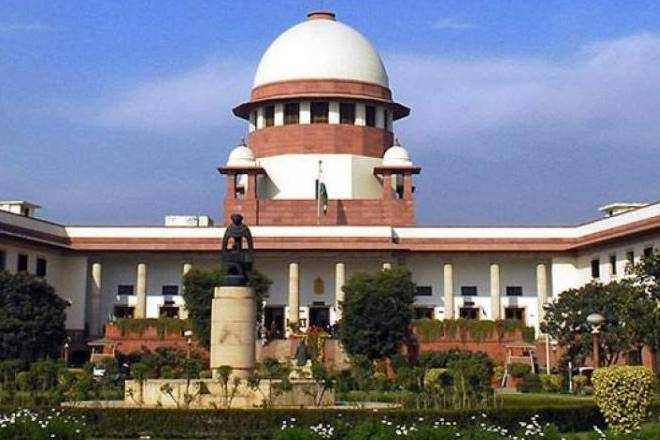New Delhi: Congress leader Ghulam Nabi Azad told the Supreme Court, Wednesday that he accepts the country is facing the problem of terrorism but it does not mean that the government can paralyse the lives of seven million people of Jammu and Kashmir by imposing restrictions post the abrogation of Article 370.
Azad said the government claims that prohibitory orders under section 144 of CrPC have been withdrawn from all police stations in Jammu and Kashmir but there are no such withdrawal orders in public domain.
A bench of Justices NV Ramana, R Subhash Reddy and BR Gavai reserved its verdict on pleas filed by Azad and ‘Kashmir Times Editor’ Anuradha Bhasin challenging the curbs imposed in the erstwhile state. The top court observed that it needs to create a balance between the rights of citizens and the national security of the state.
Senior advocate Kapil Sibal, appearing for Azad said that the statistics submitted by the state administration to claim return of normalcy was far from the ground reality and the top court has to decide the validity of the restrictions on the basis of legal principles.
“This country is facing the problem of terrorism. No one can deny this fact. We have to deal with this situation together. But, this does not mean that you can paralyse entire seven million people of the state,” Sibal told the bench.
Referring to prohibitory orders, Sibal said that nowhere it has been stated in the orders of magistrate that restrictions have been imposed on the ground of national security.
“Not a single order of magistrate on section 144 said that the restrictions are being imposed on account of national security. No where it is reflected in the orders or it relies on the statistics. The section 144 order only speaks of law and order situation,” Sibal ahe said, while contradicting the arguments.
Sibal said that Jammu and Kashmir administration has contended that situation is fast returning to normalcy and prohibitory orders have been lifted from all the police stations except for the night time. He said that no order has been brought on record to show that prohibitory orders have been withdrawn and court must accept the contention only on affidavit.
“Security personnel in Jammu and Kashmir know the mischief makers. They can identify them but there cannot be any section 144 order for keeping in confine seven million people of the state. They have to pass the test of reasonableness laid down by the apex court,” added Sibal.
Advocate Vrinda Grover, appearing for Bhasin termed the curbs ‘unconstitutional’ and said the restrictions have to pass the test of proportionality. She said that Jammu and Kashmir administration reference to prohibitory orders has no application of mind and are vague.
The bench then asked the petitioners and Jammu and Kashmir administration to file the written submission as early as possible and reserved the verdict.
PTI
